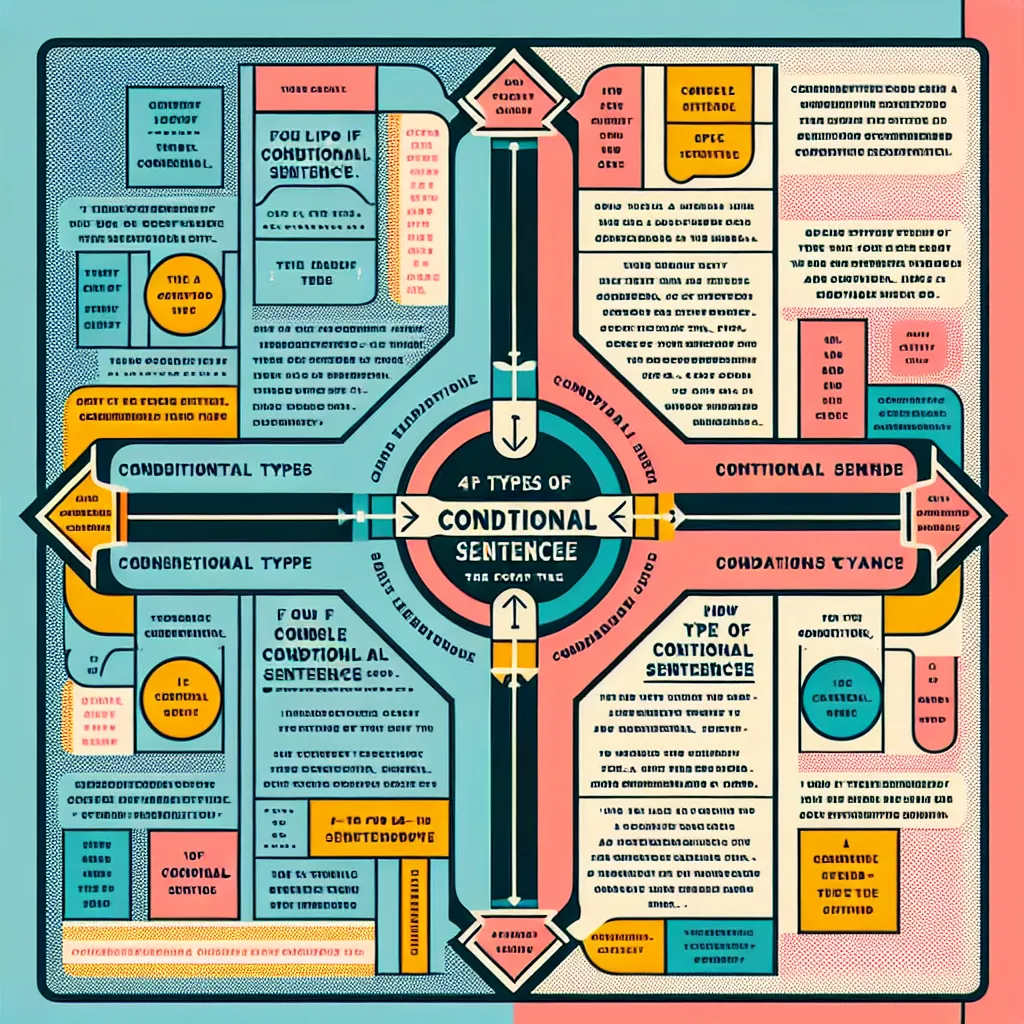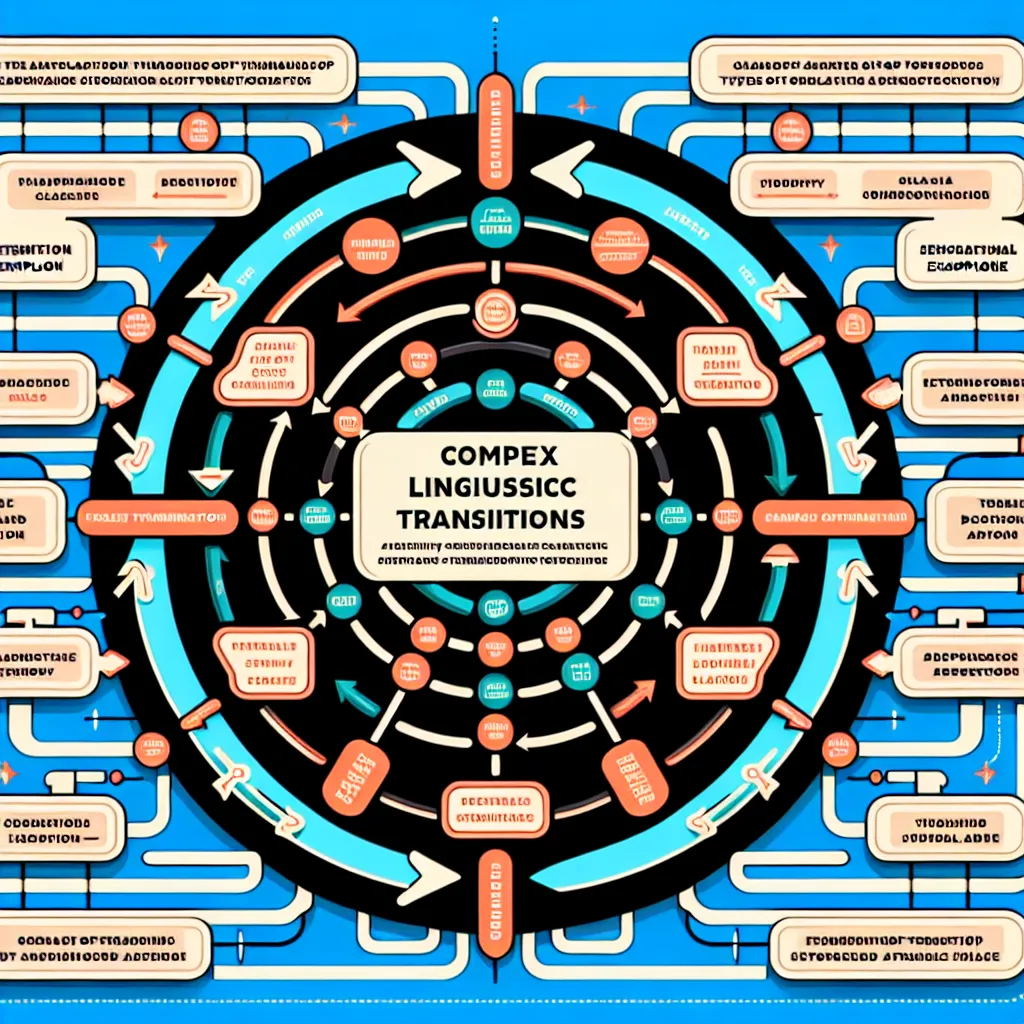Conditional sentences are a fundamental aspect of English grammar, essential for expressing hypothetical situations, consequences, and possibilities. Mastering The Use Of Conditionals In Speech can significantly enhance your ability to communicate complex ideas and engage in more nuanced conversations. This guide will provide you with valuable insights and practical tips to help you become proficient in using conditionals effectively.
Understanding Conditionals
Conditionals are sentence structures used to discuss hypothetical situations and their potential outcomes. They typically consist of two parts: the condition (if-clause) and the result (main clause). There are four main types of conditionals in English, each serving a different purpose and following specific grammatical rules.
 Conditional Sentences Types
Conditional Sentences Types
The Four Types of Conditionals
-
Zero Conditional: Used for general truths or scientific facts.
Example: If you heat water to 100°C, it boils. -
First Conditional: Used for real or possible situations in the future.
Example: If it rains tomorrow, we’ll cancel the picnic. -
Second Conditional: Used for unreal or improbable situations in the present or future.
Example: If I won the lottery, I would travel the world. -
Third Conditional: Used for unreal situations in the past.
Example: If I had studied harder, I would have passed the exam.
Tips for Mastering Conditionals in Speech
1. Start with Basic Structures
Begin by practicing the most common conditional structures. Focus on the zero and first conditionals, as they are used frequently in everyday conversations. For example:
- “If you don’t water plants, they die.” (Zero Conditional)
- “If we leave now, we’ll arrive on time.” (First Conditional)
2. Use Context Clues
Pay attention to the context of the conversation to determine which conditional type is appropriate. Consider the time frame and the likelihood of the situation occurring. This will help you choose the correct tense and structure.
3. Practice Mixed Conditionals
Once you’re comfortable with the basic types, challenge yourself with mixed conditionals. These combine different types of conditionals in a single sentence. For instance:
“If I had studied medicine (Third Conditional), I would be a doctor now (Second Conditional).”
4. Incorporate Modal Verbs
Enhance your conditional sentences by using modal verbs like “might,” “could,” or “should.” This adds nuance and sophistication to your speech. For example:
“If I were you, I might consider a different approach.”
5. Use Inversion for Formal Speech
In formal contexts, you can use inversion instead of “if” to create more sophisticated conditional sentences. For example:
“Had I known earlier, I would have informed you.” (Instead of “If I had known earlier…”)
For more information on using inversion in conditional sentences, check out our guide on how to use inversion in conditional sentences.
6. Employ Conditional Phrases
Expand your repertoire by using conditional phrases such as “in case,” “unless,” “as long as,” and “provided that.” These can add variety to your speech and help you express conditions more precisely.
Example: “I’ll bring an umbrella in case it rains.”
Common Mistakes to Avoid
- Mixing up tenses: Ensure you use the correct tense combination for each conditional type.
- Overusing “would” in if-clauses: Remember, “would” is typically used in the main clause, not the if-clause.
- Forgetting the comma: In sentences where the if-clause comes first, use a comma to separate it from the main clause.
Practical Exercises
To truly master the use of conditionals in speech, regular practice is essential. Here are some exercises to help you improve:
- Sentence Transformation: Take a simple sentence and transform it into different conditional types.
- Role-playing: Create dialogues with a partner using various conditional sentences.
- Storytelling: Narrate a story using different conditionals to describe hypothetical scenarios.
 Conditional Practice Exercises
Conditional Practice Exercises
Advanced Conditional Usage
As you become more proficient, explore advanced conditional structures to elevate your English skills. Our article on mastering the use of advanced conditional clauses provides in-depth guidance on this topic.
Additionally, understanding how to use hypothetical statements can further enhance your ability to express complex ideas using conditionals.
Conclusion
Mastering the use of conditionals in speech is a journey that requires patience, practice, and persistence. By understanding the different types of conditionals, avoiding common mistakes, and regularly practicing with various exercises, you can significantly improve your ability to express complex ideas and engage in more sophisticated conversations in English.
Remember, the key to mastery is consistent practice and application in real-life situations. Don’t be afraid to experiment with different conditional structures in your daily conversations. As you become more comfortable, you’ll find that using conditionals becomes second nature, allowing you to communicate more effectively and confidently in English.
For those looking to take their English skills to the next level, especially in professional settings, our guide on advanced grammar for professional communication offers valuable insights and techniques.
Keep practicing, stay curious, and watch as your English proficiency soars to new heights!




